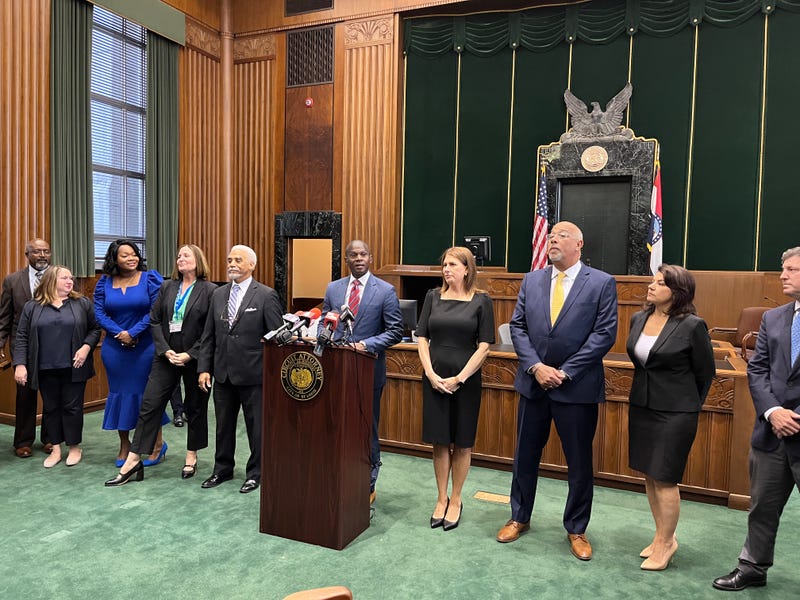
ST. LOUIS (KMOX) - When Gabe Gore was initially wrestling with accepting the position as St. Louis Circuit Attorney's office, he initially saw the office as one that was 'ceasing to perform it's vital role in the criminal justice system.'
"It caused me to ask myself the question, of whether or not I was witnessing the collapse of the rule of law in St. Louis, the city that I love." Gore told KMOX News.
Gore said the morale on the inside was office was low, with the office facing criticism in the press and public and struggling due to a lack of manpower. He credits those who were there for helping keep the ship afloat.
"When this office was experiencing its most difficult times, [they] stayed here and kept the office operational. Could you imagine if they had not done that?" said Gore.
Gore says he saw a law office who's struggles were mostly due to staffing issues.
"Well I do think that a lot of what happened in the office was your very experienced prosecutors left, and it was a tremendous drain of institutional knowledge." said Gore. "When you lose a lot of very senior attorneys who really provide the leadership and institutional knowledge the office is based on, that has a destabilizing effect."
Since taking over, Gore has more than doubled the office's roster of attorneys. That increase in manpower has helped them work though a massive backlog of cases, slashing what was originally 6,700 cases to around 2,600. However, there is still a large backlog of homicide cases.
"So it was 250 homicides pending when I first took over, which represents about a 100% increase over the number of homicides that are typically pending in the Circuit Attorney's office," said Gore. "That number as of today is 237 and that's despite the fact that we've resolved over 70 homicides this year, which is a big number."
Gore says the backlog will take time to fix.
"We're working on coming up with an approach and a solution to dealing with this huge backlog of homicide cases." said Gore. "It's something that we're going to be living with in my view for at least a couple more years, it's not going anywhere overnight."
Why will it take so long?
"Homicides are complex cases that typically are handled by the very most experienced attorneys in the office." Gore explains. "When you're talking about a homicide attorney you're talking about someone who has had many years of experience and training."
Gore acknowledges his young attorneys will have to grow up fast.
"We're gonna have to get our younger attorney's ready to handle those serious cases on a much more expedited basis than is typical." said Gore.
However, despite the need for the younger attorneys to step up, Gore says he will not put a prosecutor in a position to fail.
"There is going to be no one handling homicide cases in this office without us being confident they are ready for it," said Gore.
Gore said this year, his office will struggle with homicide cases due to lack of outside help.
"The US Attorney's Office had agreed to take 20 homicide cases and private sector attorneys who were experience circuit attorneys stepped up and said they would take 30 cases." said Gore. "So we had essentially 50 cases that were handled outside of our office. If you talk about 50 homicide cases you're basically talking about one full time homicide prosecutor."
Circuit Attorney Gore is confident that in time he will build an office with a deep roster of experienced attorneys based on new rule he has implemented.
KMOX asked Circuit Attorney Gore why St. Louisans don't feel like crime is falling despite stats showing overall it is.
"People sometimes focus on one or two high profile events and don't look at the overall numbers. That can sometimes drive a misperception that an area is unsafe." said Gore.
Gore says perception tends to lag behind reality.
"That is just always the case, so you have to sustain results for a long time before you actually start to change perception." said Gore.
He says in his office's view, downtown is safe.
"The attorneys in my office, the support staff in my office, we're downtown every day and we don't feel unsafe. In our mind, downtown is a safe, safe place to be."
